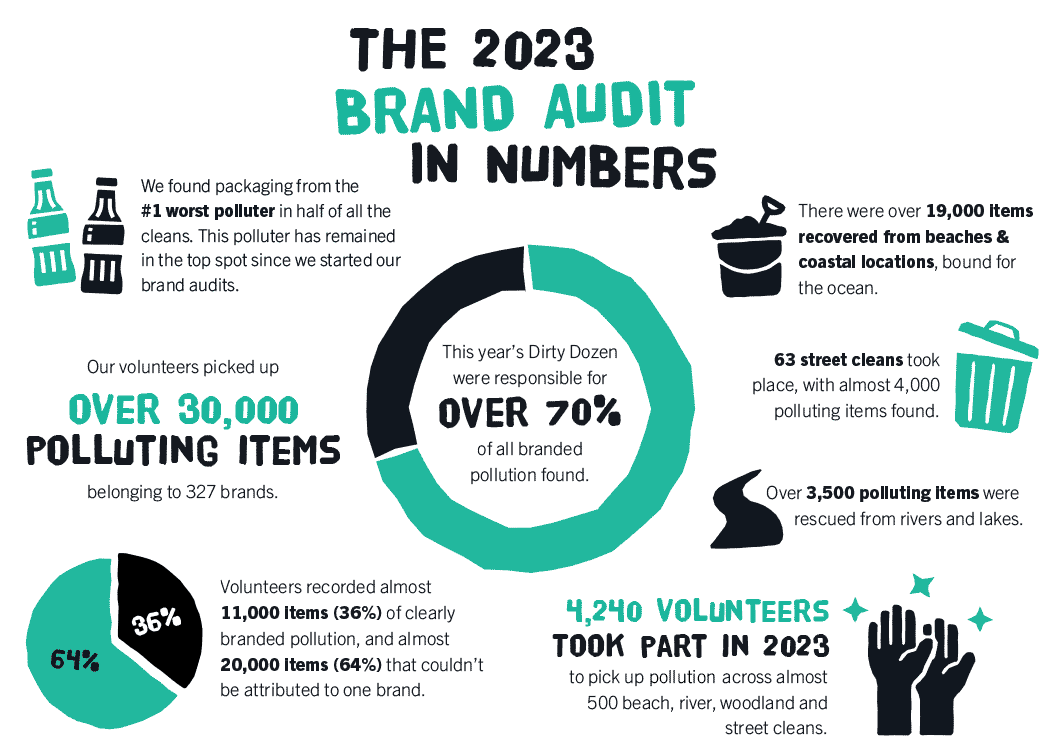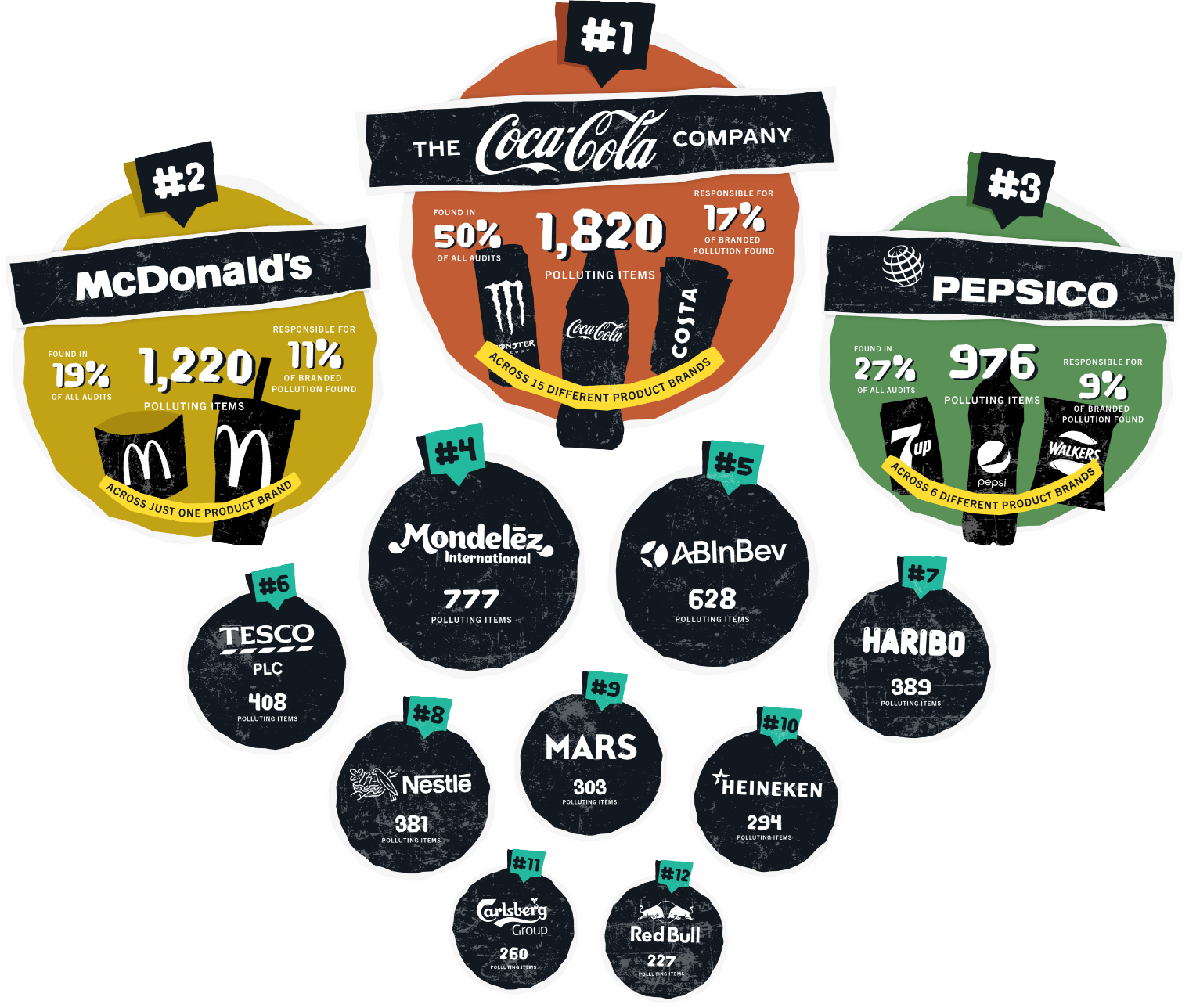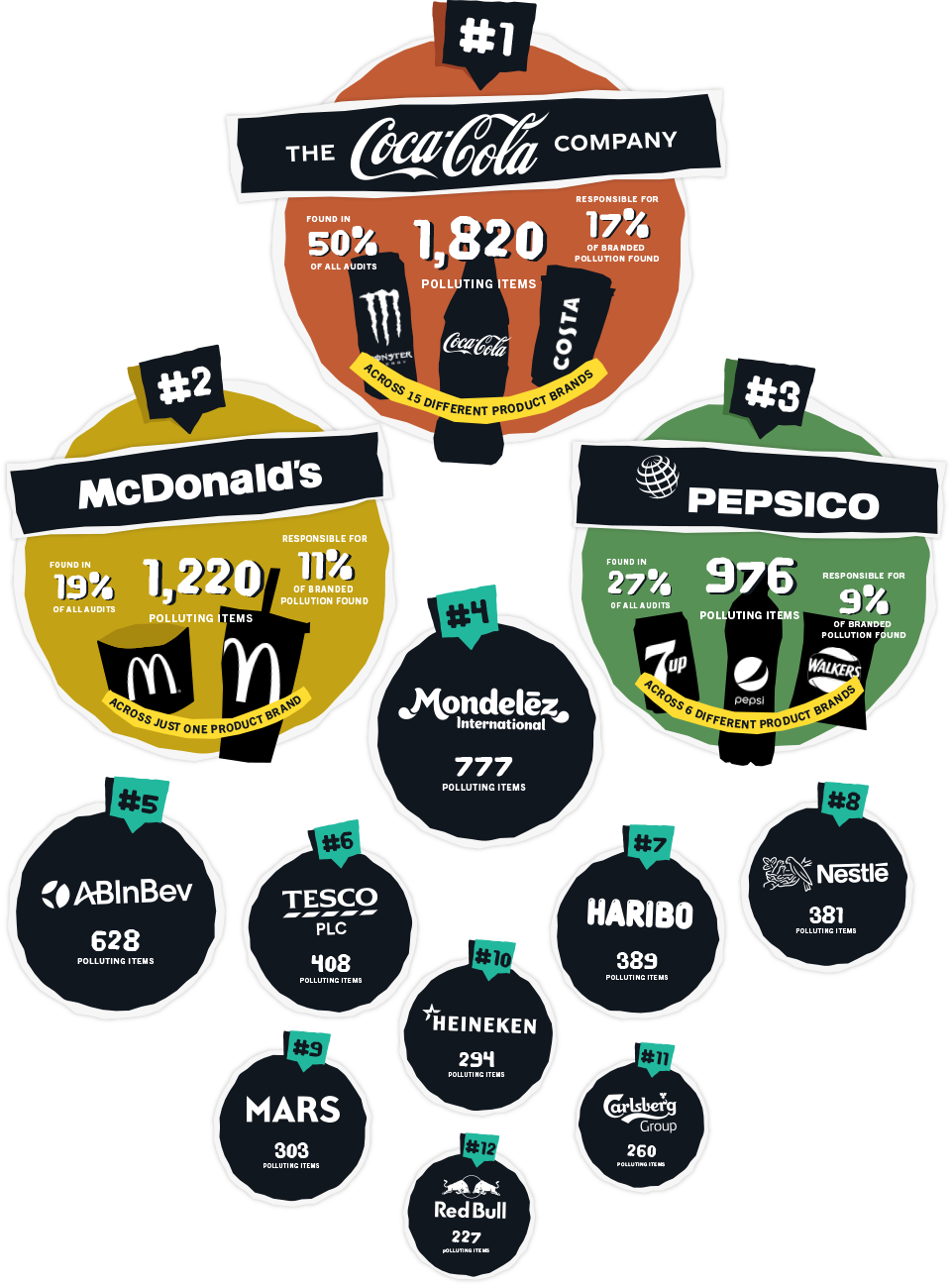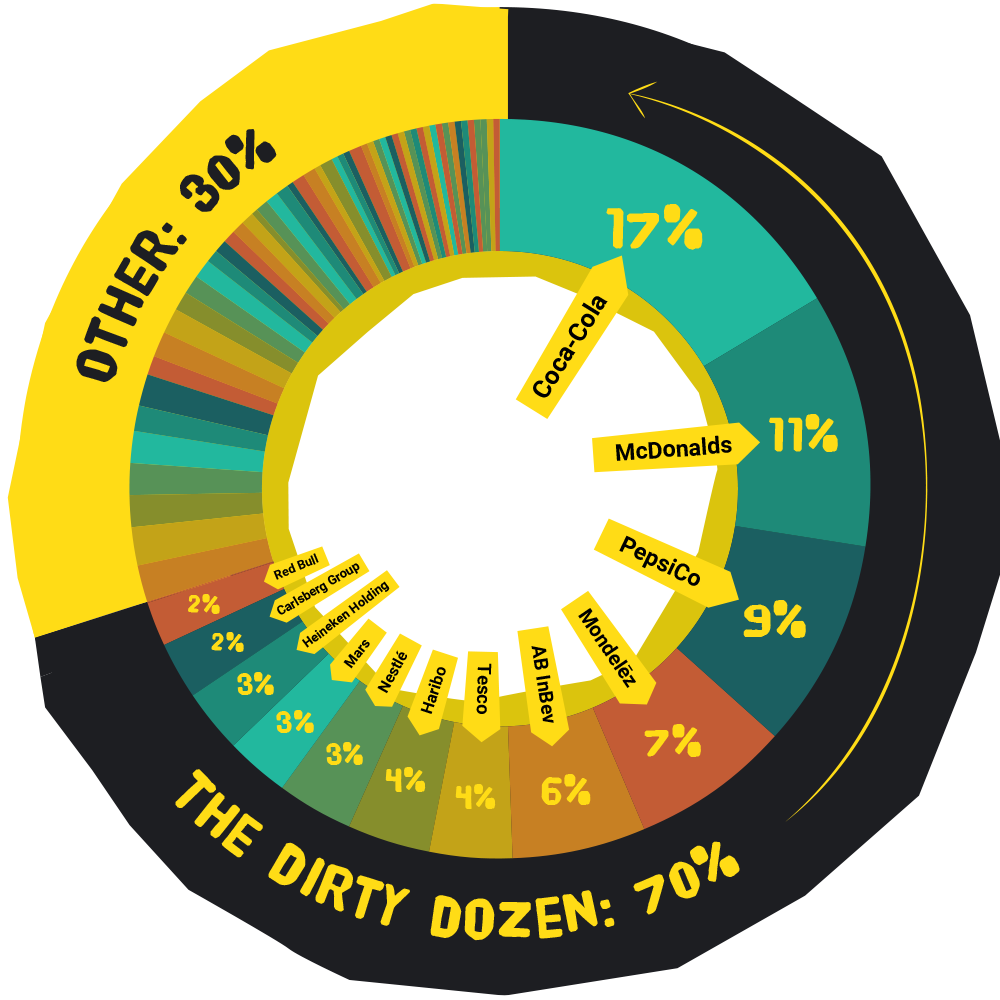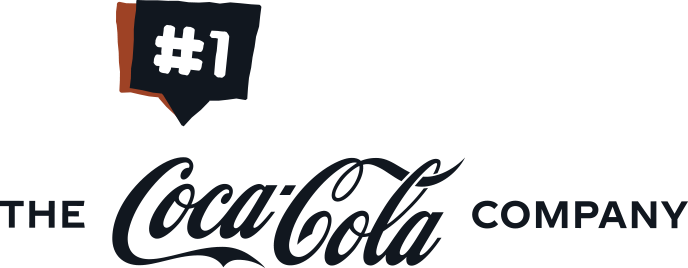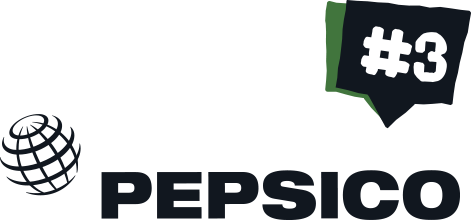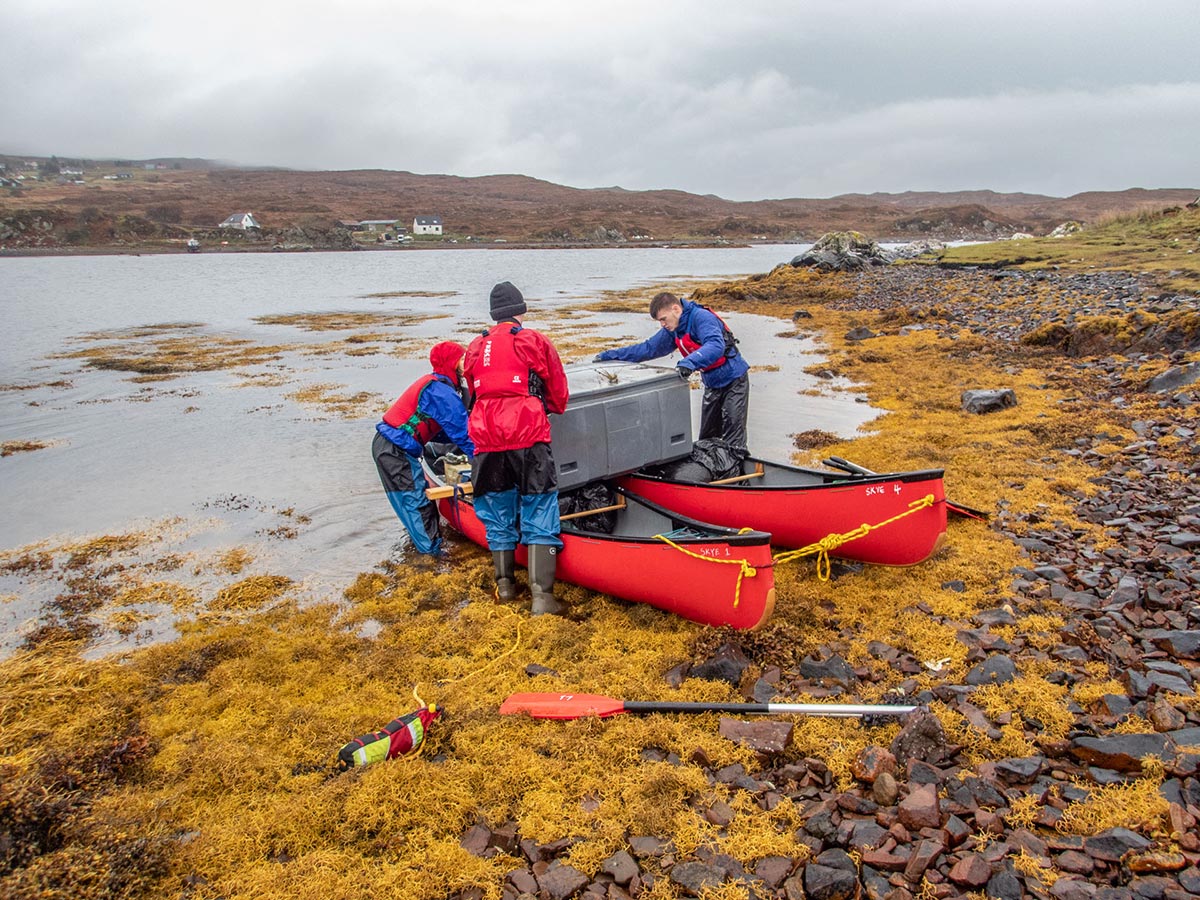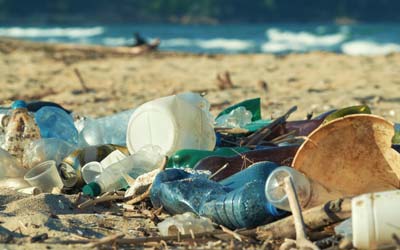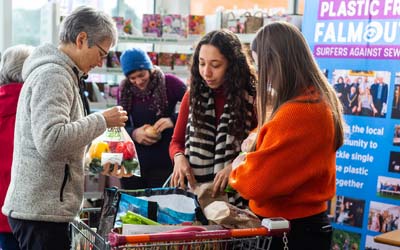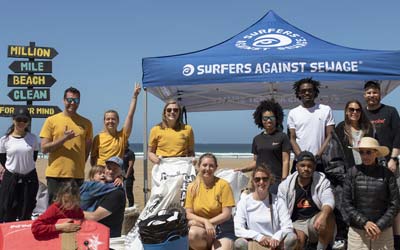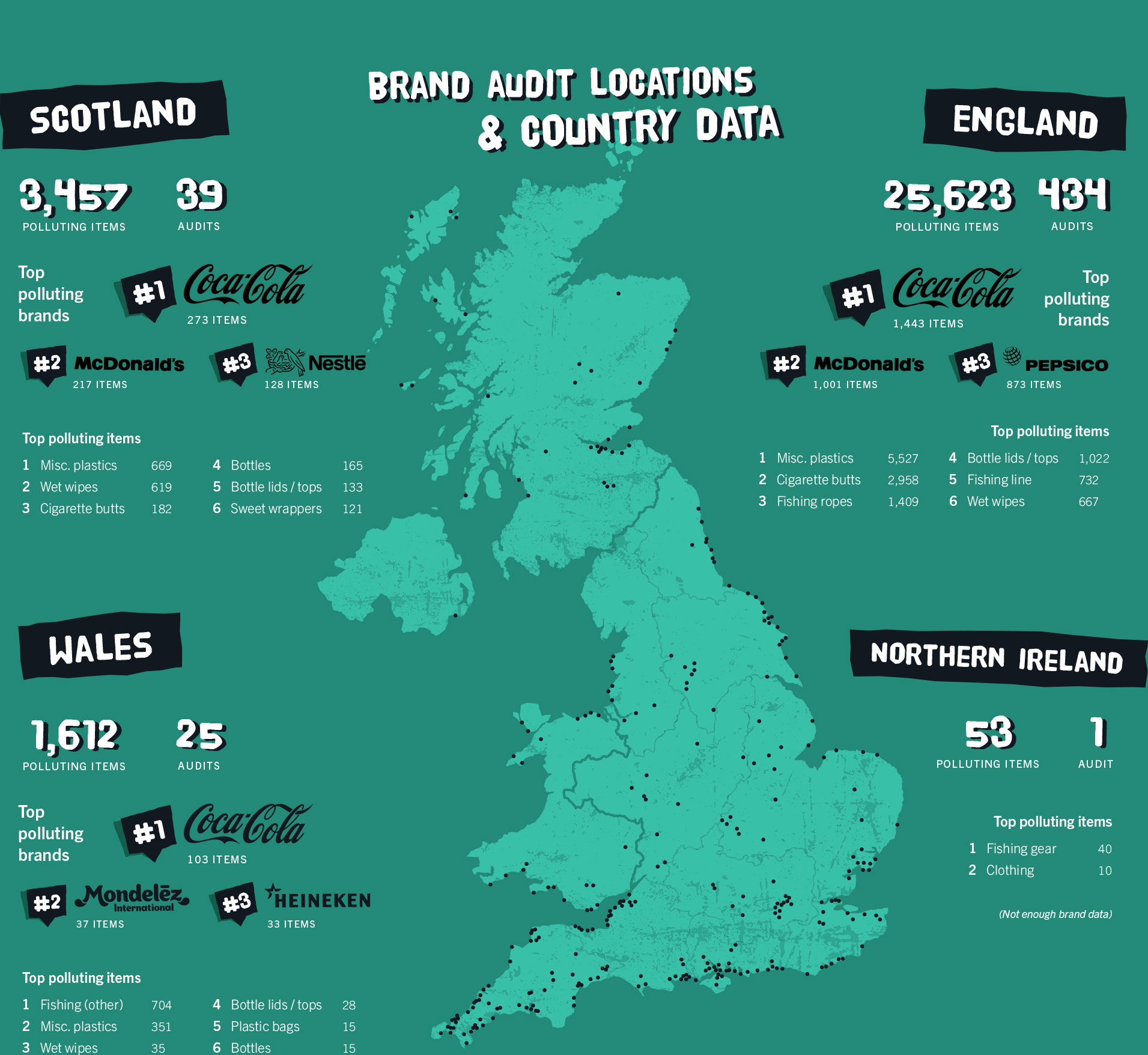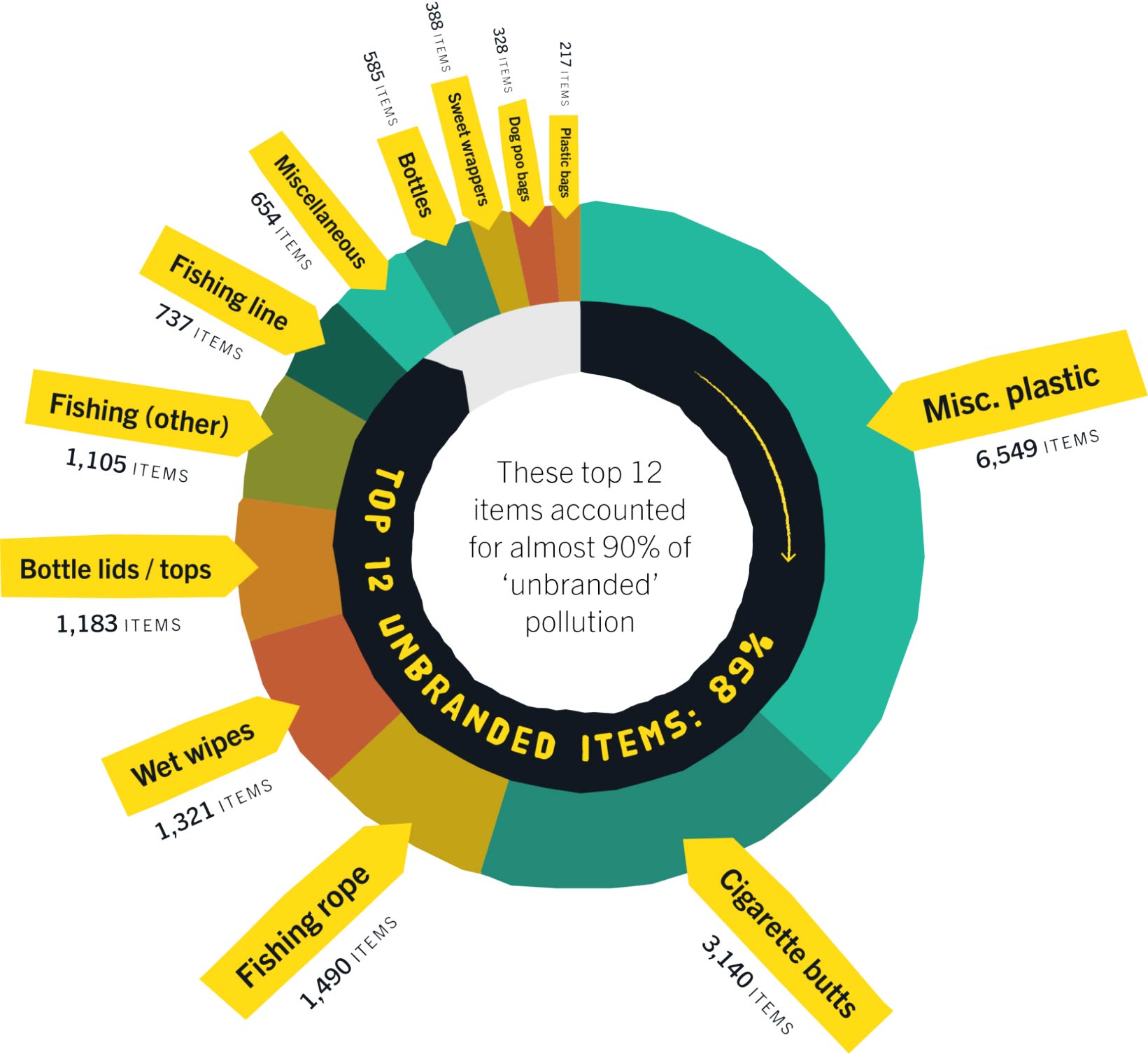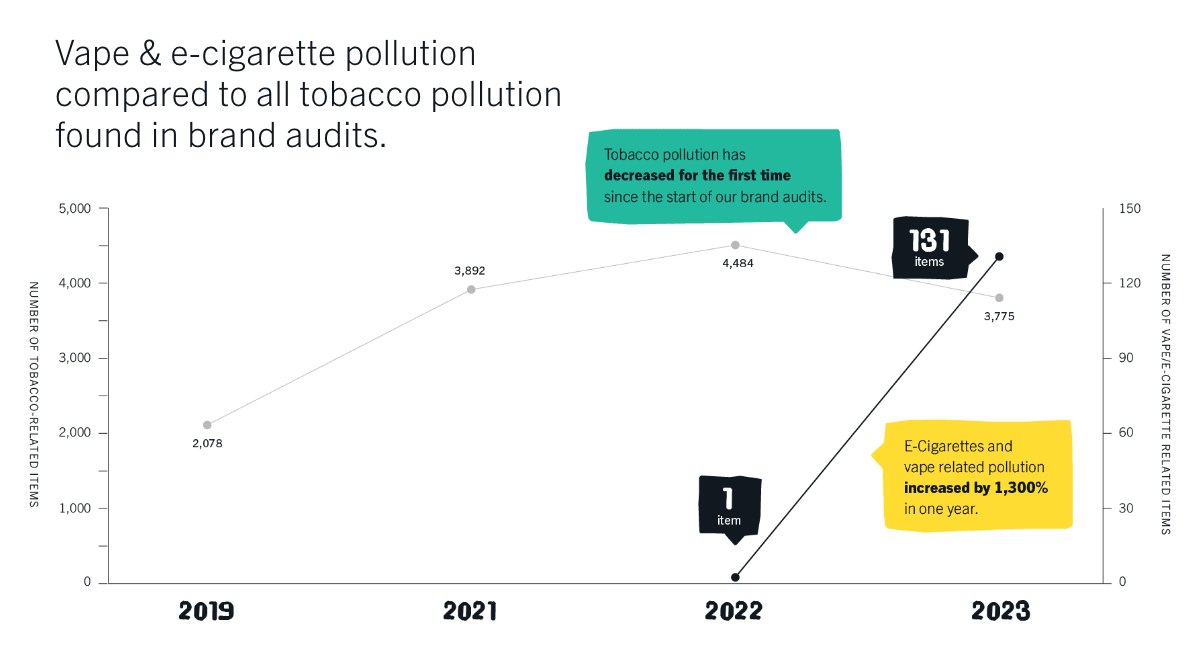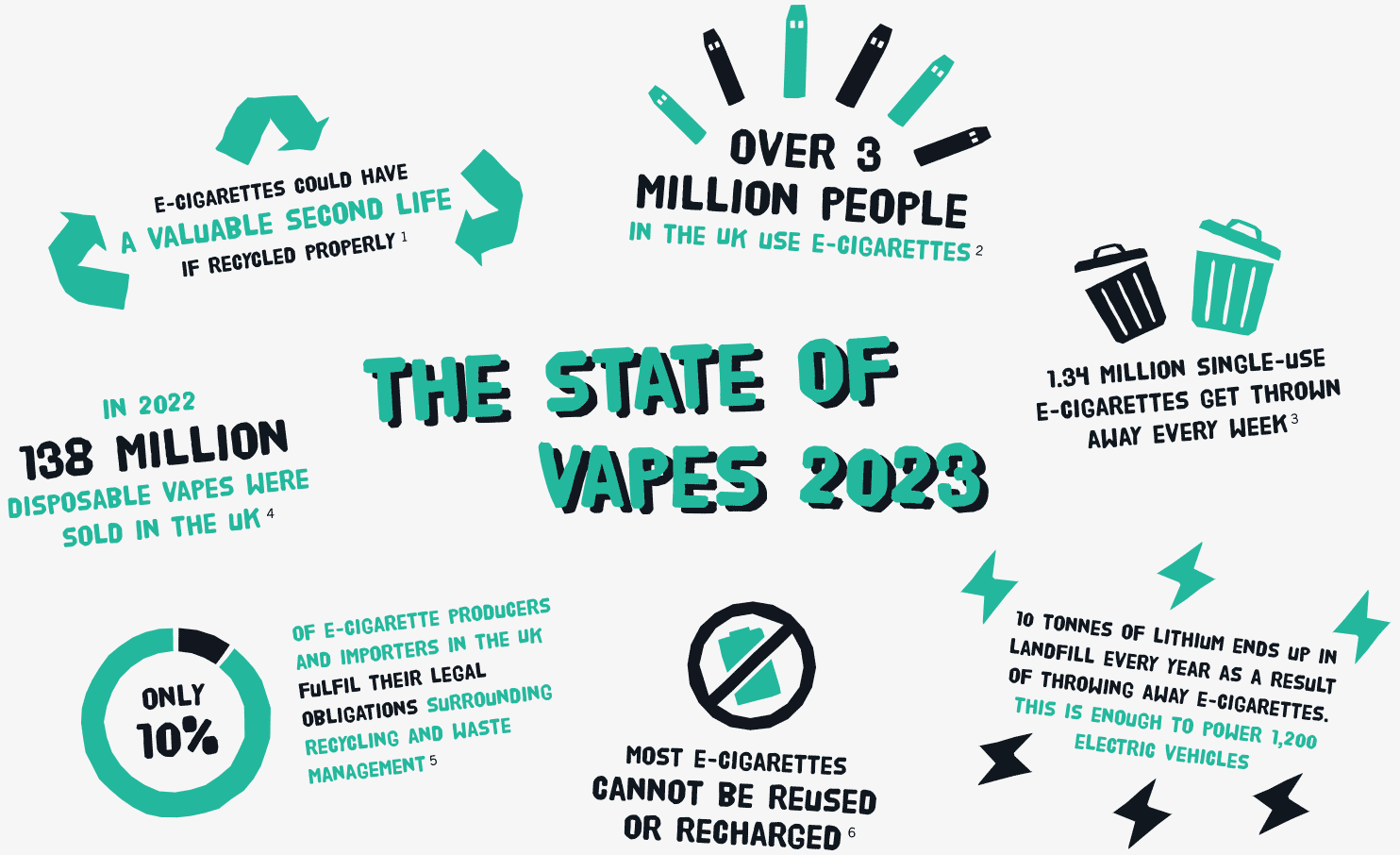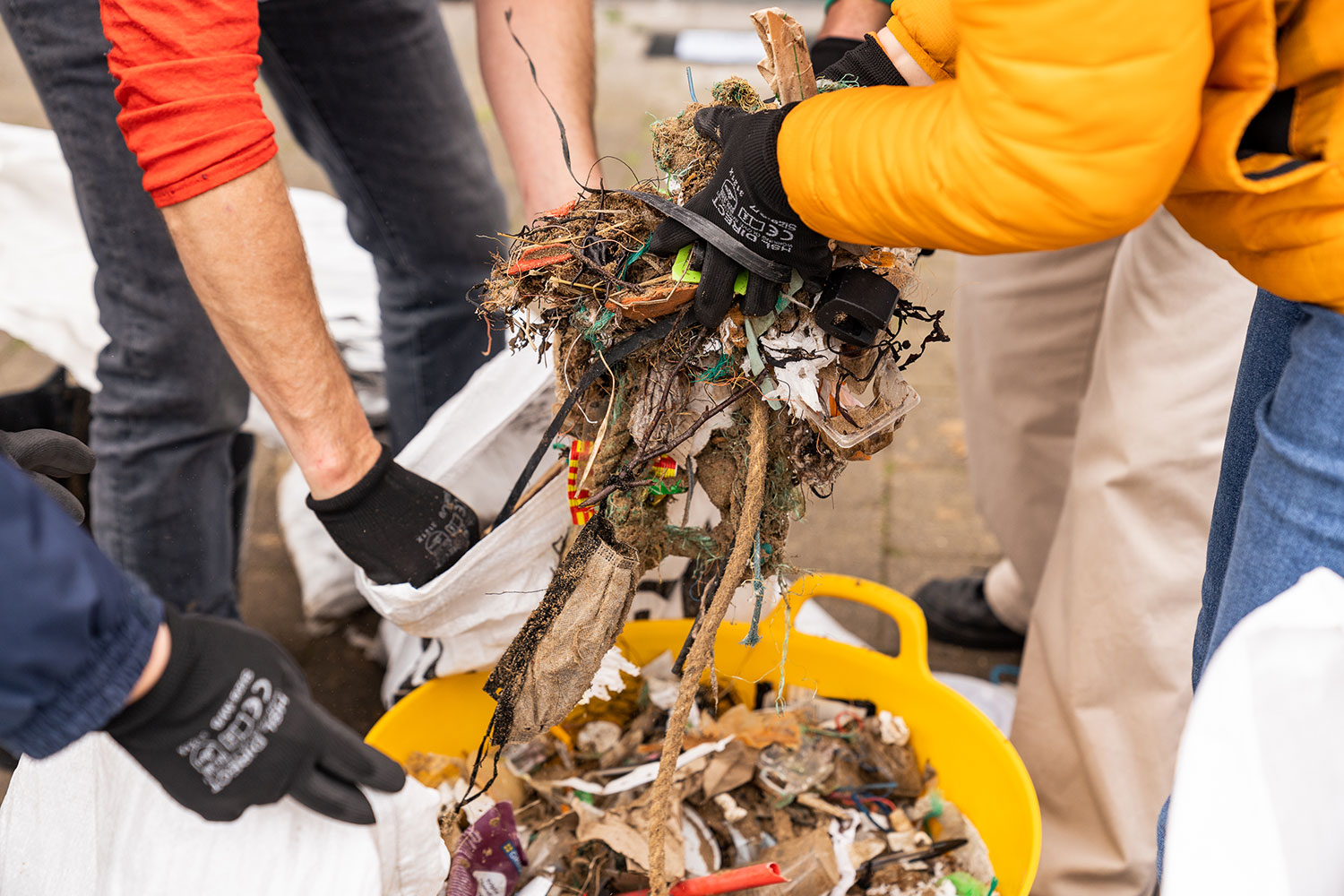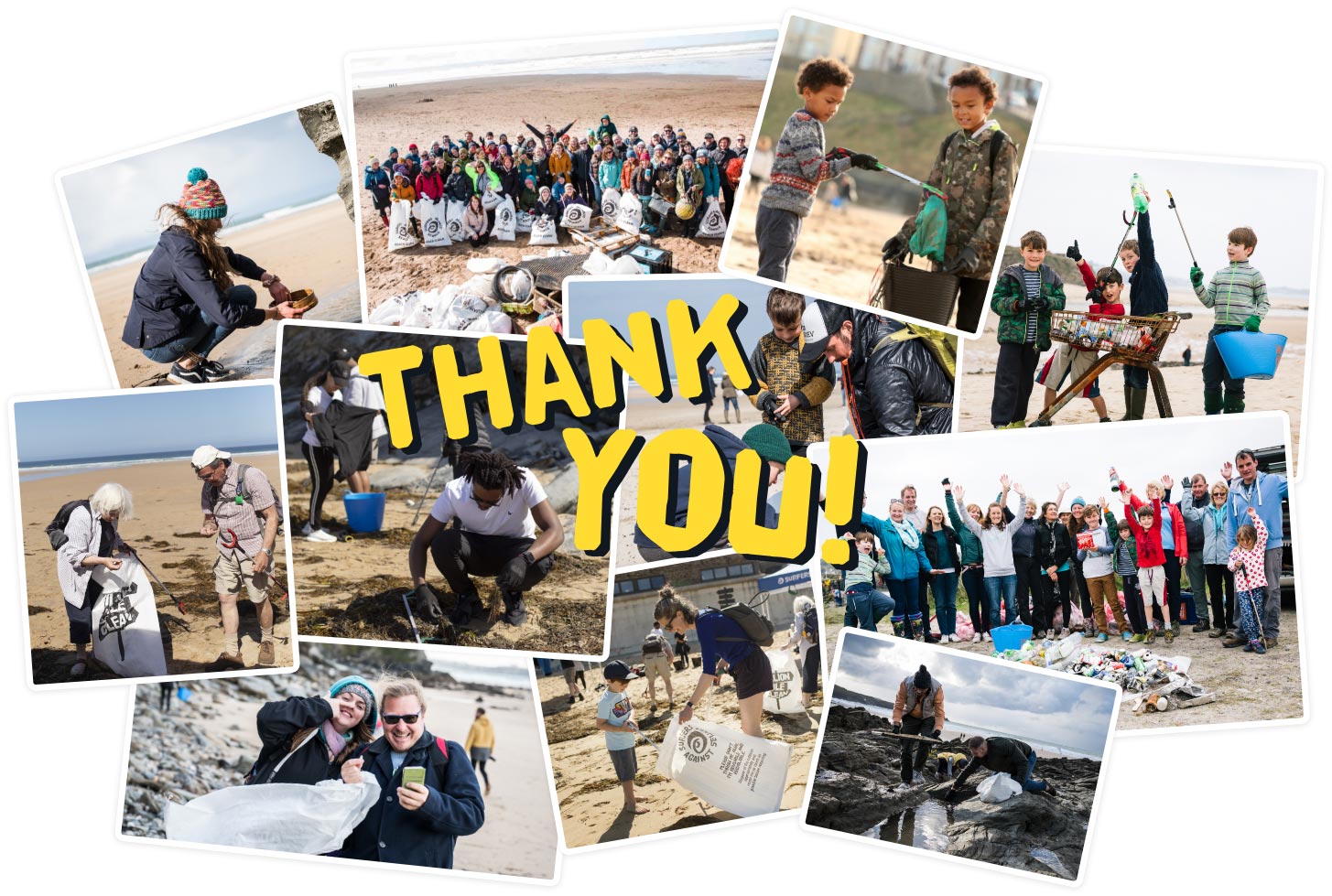What is a
Brand Audit?
The Surfers Against Sewage (SAS) brand audit is a citizen science initiative that relies on volunteers collecting, recording and reporting the pollution they have uncovered during their Million Mile Clean throughout the year. This data enables us to identify and call out the UK’s biggest plastic polluting brands.
Collectively, we are able to use this hard hitting data as concrete evidence to hold polluters accountable, demand resolutions for the plastic pollution crisis and drive corporate behaviour change. We annually expose the Dirty Dozen, highlighting repeat offenders and calling out delays or lack of consideration by these polluters who need to take responsibility for managing their plastic waste.
From our sandy beaches to our city streets, we’re sick and tired of picking up plastic pollution. The ocean is drowning in plastic and our systems simply can’t cope. We can’t pick our way out of this problem. It’s time for the big businesses responsible for flooding the world with plastic to take responsibility and reduce their plastic packaging.
For the fourth time, we are calling out the brands responsible for the scourge of plastic pollution across the country in the 2023 Brand Audit. Together we have the power to hold plastic polluters to account, and demand they reduce their plastic and switch to models of reuse and refill.
Introducing this year’s
dirty Dozen
The Dirty Dozen represented a staggering 80 well-known product brands, including food & drink, confectionery and alcohol brands, and this is from just what our volunteers found in the audit. The reality is that these global organisations are responsible for producing some of the largest numbers of plastic pollution globally. We’ve also mapped out the offending brands in our Dirty Dozen brand breakdown.
The Dirty dozen made up 70% of all branded pollution found. And the three worst offenders this year, Coca-Cola, McDonalds and PepsiCo, were accountable for over 50% of all of the Dirty Dozen’s polluting waste.
What they say
vs what we found
Our top polluting companies publish their corporate and wider commitments for all to see, but are these commitments upheld or are we being greenwashed?
Virgin plastics
& ending the cycle
The #DirtyDozen continues to fuel the plastic pollution crisis and fill the Ocean and air with their carbon emissions.
Our findings yet again have highlighted the systemic problem the UK faces with plastic and packaging pollution. The root cause is the overproduction and overconsumption of non-essential, single use, throw away items, including virgin plastics made from crude oil.
Recent studies have found the production of one single-use 500mL plastic bottle can produce around 82.8 grams of carbon dioxide. This all adds up and Scientists estimate that the carbon footprint of plastic production is a significant factor in climate change. In 2015, plastics were accountable for 4.5% of global greenhouse gas emissions, meaning that if plastics were a country, it would be the fifth largest emitter of greenhouse gases in the world.
Crude oil rigs are utilised to dig up crude oil needed for creating plastic and, as a result, have terrifying and far reaching consequences for the planet. Not only are they among the highest carbon emitters in Europe, CO2 emissions released into the atmosphere from extracting North Sea oil and gas reached 13.1 million metric tonnes in the UK in 2019, or 21 kg of carbon dioxide for every barrel of oil produced. Crude oil rigs also pollute the water with chemical byproducts and microplastics, disrupt marine mammals and tear up sea beds and impact precious marine ecosystems.
Who’s to blame?
Our research found that the majority of packaging pollution is still coming from just a handful of the world’s largest companies. With their massive resources and influence, they have real power to positively change consumer behaviour to stamp out this excessive and often unnecessary production and pollution of plastic.
Yet, despite global brands’ use of virgin plastics reportedly being on track for a significant drop by 2025, are these brands, wider businesses and the government REALLY doing enough to reduce packaging, switch to reuse models and enable recycling?
In fact, we’ve seen no change at the top since we started our Brand Audits back in 2019.
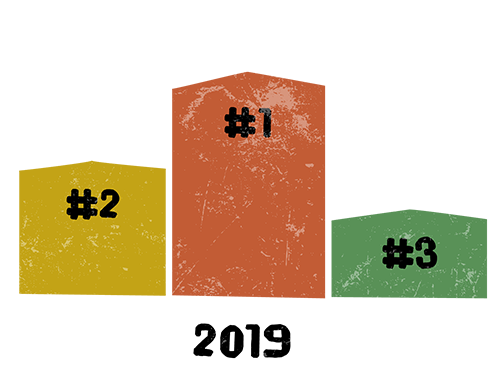
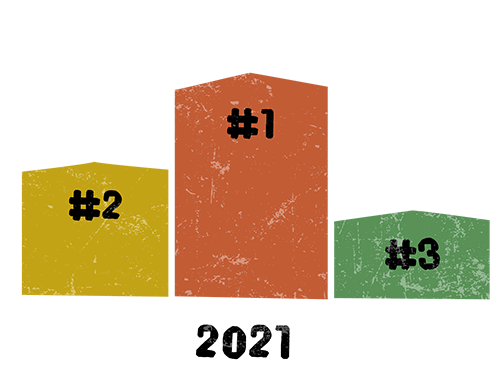
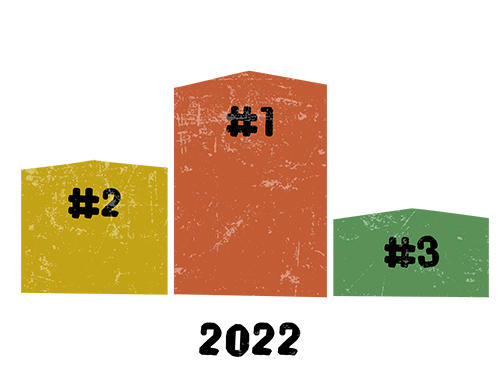
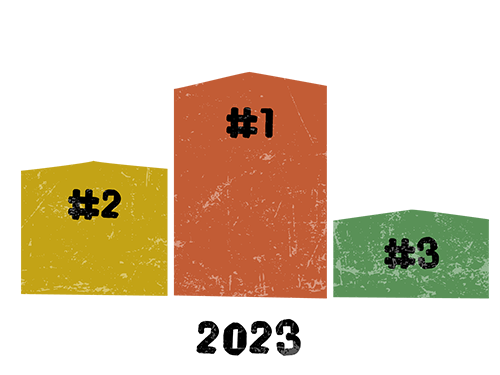
What can we be doing RIGHT NOW?
To solve the plastic pollution crisis, we urgently need our governments to adopt policies that stop the production of unnecessary plastic products which threaten human health and the environment, in addition to perpetuating our throw away culture.
It is vital that we instead continue to build on a circular economy that ensures plastics are designed to be reused, repaired and then effectively recycled in truly circular systems. We can start by adopting a UK wide Deposit Return System as soon as possible that stops plastic, aluminium and glass getting into our precious natural spaces. Deposit Return Systems have been proven to work around the globe, and there is no need for further delay.
An opportunity for a cleaner future
In May this year, 180 nations came together in Paris to continue negotiations on a global plan to tackle plastic pollution in the form of a Global Plastics Treaty. As plastic pollution invades every part of the globe this treaty is a huge opportunity to tackle this globally important issue.
But in order for the treaty to be effective it must be fundamentally targeted at reducing plastic production at source and stopping the unsustainable production of new carbon intensive virgin plastics. This key global treaty against plastic pollution could start to take effect as early as 2025 and for us, it can’t come soon enough.
Explore our plastic
pollution campaigns
Call them out:
Demand answers & action
Don’t let the #DirtyDozen hide their horrors behind greenwashing tactics, share the facts on social to get them to take responsibility for the mess their brands are leaving behind.
We’ve created a whole toolkit, tagging the worst offenders, to get their attention and let them know its time for them to step up and help #EndPlasticPollution! You can also email them directly, or write to your local MP with our handy letter generating tool.
Ready for more?
Read the rest of our report to discover what other pollution our volunteers found and the impact it’s having on the environment.

What else did our
citizen scientists find?
This year, volunteers from all over the UK took part in local audits at beaches, woodlands, rivers, mountains and streets. The following map shows the locations of each of the audits we have analysed data from, long with localised data for each of the UK’s devolved nations; England, Northern Ireland, Scotland and Wales.
Not every brand could be identified
Many of the items recovered from the environment were too degraded or small to confidently identify as a specific brand. Cigarettes in particular often have their brand names burned away before the butts are discarded into the environment, and items out of their original packaging such as dog poo bags and straws don’t show a brand at all.
These ‘unbranded’ items accounted for a whopping 64% of all pollution found this year, totalling over 19,000 items. Our citizen scientists recorded their findings of this apparently unbranded pollution, and the following chart shows the 12 most commonly found item types.
The rise of
Vapes & e-cigarettes
This year’s brand audit figures reveal a staggering increase in the amount of vape and e-cigarette products found polluting the environment, rising from 1 to 131 in just one year!
This represents the wider problem across the UK, as the growth in the use of vapes and particularly e-cigarettes, is rapidly on the rise. As sales and profits flourish for the polluting companies, the environmental impact of vapes and e-cigarettes has been disregarded.
As e-cigarette waste is on the rise, so is the environmental threat due to the introduction of plastics, toxic nicotine*, lead, mercury and flammable lithium-ion batteries into waterways, soil and wildlife habitats. EU and UK regulations for producers of electronics such as these are legally obligated to fund the recycling of the tonnage equivalent to what they put on the market. But currently, only 16 of the UK’s 150 biggest vape brands have registered to comply with this.
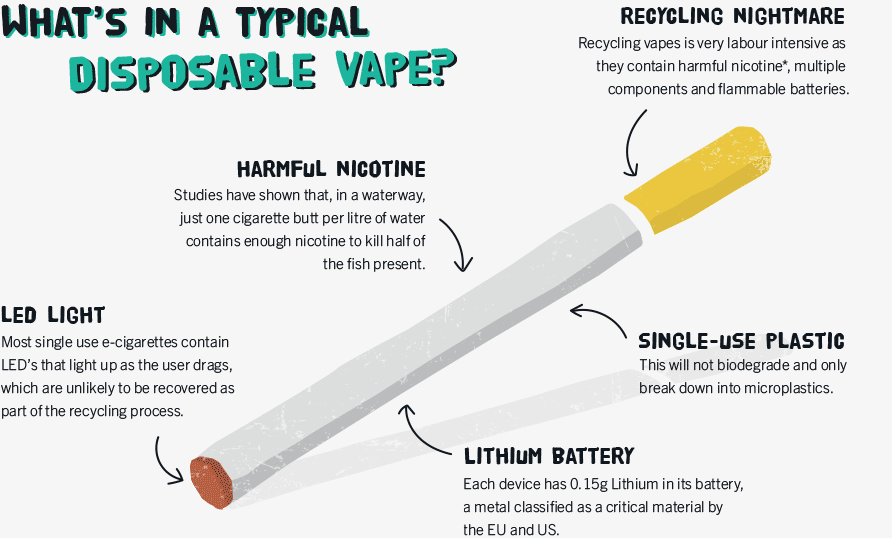
Abandoned
fishing gear
Discarded and abandoned fishing gear (also known as ghost gear) items collected in this year’s brand audit have more than doubled in one year.
With an estimated 640,000 tonnes of lost or discarded gear entering our oceans each year, this remains a key threat to the health of the oceans, waves, beaches and wildlife. As this material is often lost or discarded at sea, it can be assumed that much of this material will remain within the ocean rather than being washed up onto beaches.
Latest research shows that the majority of floating plastic pollution stems from fishing activities on behalf of industrialised fishing nations, highlighting the important role the fishing industry plays in the solution to this global issue.
The Environment Agency just last year released guidance setting out how UK port and harbour managers can protect marine life by responsibly managing resources and waste. The Interreg Preventing Plastic Pollution is a partnership of 18 organisations in England and France who work together and fund educational material aiming to reduce the impact of plastic pollution in river and marine environments and encourage cultural change in both local communities, and businesses, whilst identifying real solutions.
What does this
all mean?
This year’s brand audit has unveiled the shocking truth behind the Dirty Dozen who are continuing to unleash packaging pollution havoc in the UK.
We discovered the alarming expansion of vape plastic pollution, a growing crisis for our environment and found that abandoned fishing gear has almost doubled in one year, with over 640,000 tonnes of fishing gear polluting our oceans each year. We have exposed the companies responsible for a staggering amount of packaging pollution and yet AGAIN Coca-Cola and PepsiCo are leading the pack as repeat offenders. Coca-Cola have claimed the top spot for the 4th consecutive year and McDonalds are coming in at a close second place.
The Dirty Dozen were responsible for over 70% of branded pollution found. It’s time to hold these companies accountable for their actions and demand responsibility in their single-use plastic waste. Join us in the rebellion against the Dirty Dozen, make them feel the heat and help us to shut down the plastic tap once and for all. It’s time for these companies to take real accountability and move towards a circular economy.
We are calling for…
Call them out:
Demand answers & action
Don’t let the #DirtyDozen hide their horrors behind greenwashing tactics, share the facts on social to get them to take responsibility for the mess their brands are leaving behind.
We’ve created a whole toolkit, tagging the worst offenders, to get their attention and let them know its time for them to step up and help #EndPlasticPollution! You can also email them directly, or write to your local MP with our handy letter generating tool.
Our Volunteer
Citizen Scientists
This year, over 4,000 incredible humans worked together to clean up tens of thousands plastic pollution from a huge range of environments, cleaning up beaches, rivers and woodlands and keeping it out of the ocean. Without their time and dedication, we wouldn’t be able to hold these polluters to account. What else can we say but a massive…
And thank you to the photographers who captured these moments: @IanLean, @KassiaMurfet, @LewisArnold
Want to be part of our
2024 Brand Audit?
Do you want to be a citizen scientist and hold plastic polluters to account? Then take part in a Million Mile clean, submit your results and help fuel our plastic campaigns.
The more data submitted, the more power we have to hold plastic polluters to account, and demand they reduce their plastic and switch to models of reuse and refill.
Vape infographic sources:
1 https://www.recycleyourelectricals.org.uk/how-to-recycle-electronics/what-electronics-can-be-recycled/recycle-vapes/
2 https://www.ons.gov.uk/peoplepopulationandcommunity/healthandsocialcare/healthandlifeexpectancies/bulletins/adultsmokinghabitsingreatbritain/latest#the-use-of-electroniccigarettes-e-cigarettes-great-britain
3 Material Focus, One million single use vapes thrown away every week contributing to the growing e-waste challenge in the UK, 15 July 2022
4 https://www.ft.com/content/6d5ed980-8b91-4372-9e7e-14eda5419325
5 https://envirotecmagazine.com/2023/03/30/vape-producers-in-the-uk-failing-to-meet-environmental-regulations/
6 https://mgriblog.org/2018/10/16/e-cigarettes-and-adolescents-a-break-down-of-products-and-preferences/
